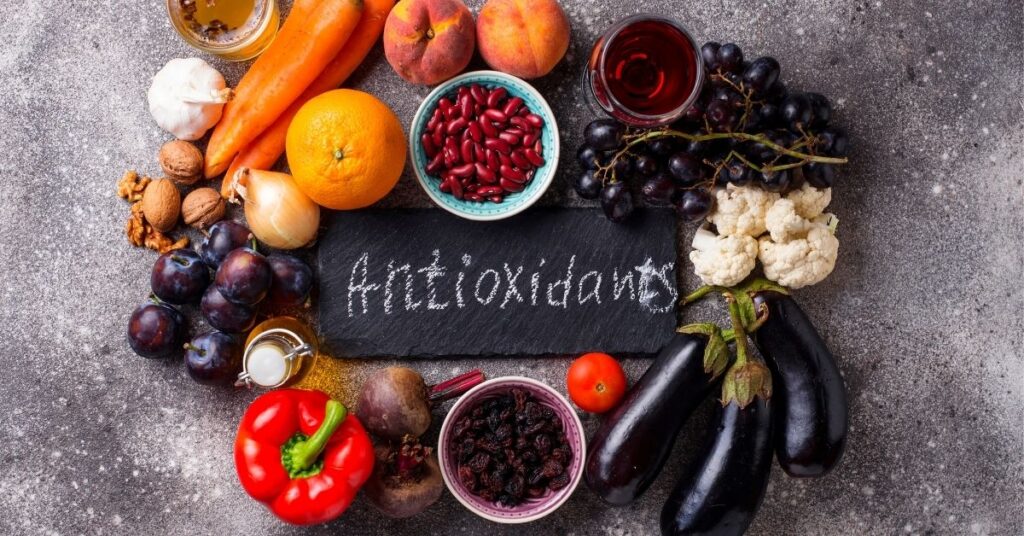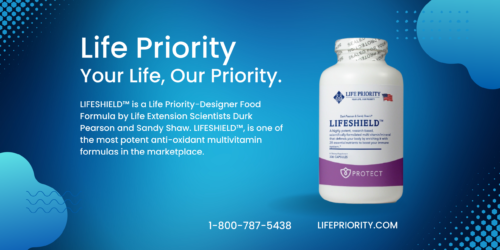

What Are Antioxidants? 6 Quick Facts About Antioxidant Vitamins
- by Life Priority
- No Comments
- Post Views: 86
1) What are antioxidants?
When discussing antioxidants, we mean vitamins C, E, and the provitamin Beta Carotene.
2) Where are antioxidants found?
These nutrients can be found in a wide variety of vitamin supplements and fortified foods. More specifically, Vitamin C is found in grapefruits, strawberries, blueberries, oranges, kale, potatoes and broccoli. Vitamin E is found in leafy greens and nuts. Finally, Beta Carotene is found in collard greens and spinach, as well as other dark green leafy vegetables, and in yellow-orange fruits and vegetables like sweet potatoes, carrots, cantaloupes and peaches.
3) What do antioxidants do?
Antioxidant vitamins play an important part in keeping our body safe and healthy. Free radicals, highly-reactive and unstable molecules that may cause cellular damage, threaten our body daily. They are produced naturally within our bodies and can also be produced by air pollution and tobacco smoke. After recent studies and research, it’s now believed that the cellular damage caused by free radicals, in addition to other factors, may lead to the formation of many chronic diseases including heart disease and cancer. Antioxidants are very important because they have the ability to neutralize free radicals and keep our body healthy.
4) What do doctors and other health professionals recommend?
Obviously doctors and healthcare providers recommend regular exercise, checkups on a consistent basis, less fatty foods and salts and no smoking. In addition to these healthy practices, it’s also recommended to eat a balanced diet that contains at least five daily servings of vegetables and fruits rich in antioxidant vitamins.
5) How about vitamin supplements?
Antioxidant vitamins can be found in numerous supplements and food products such as breakfast cereals and juice drinks. Many physicians believe taking supplements or eating fortified foods with vitamins and minerals is important for those who don’t have a particularly good diet or who have special needs. People are also strongly advised to read the nutritional labels.
6) Are there any risks to ingesting antioxidants?
Vitamins C, E and Beta Carotene are officially classified as Generally Recognized as Safe (GRAS). In addition, the vast amount of scientific evidence obtained and gathered over many years supports the safety of antioxidants, even at high levels, but one should always follow label directions.
Need to get more antioxidants into your diet? A supplement might be an option. For example, One-Per-Meal LifeGuard™ is a multi-vitamin and mineral antioxidant supplement formulated for free radical protection and general nutrition needs.
Life Priority, established in 1994, offers supplements that are scientifically-formulated, results-oriented, and GRAS (Generally Recognized As Safe) and are manufactured at USDA and FDA inspected facilities.
*The products and statements made about specific products on this web site have not been evaluated by the United States Food and Drug Administration (FDA) and are not intended to diagnose, treat, cure or prevent disease. All information provided on this web site or any information contained on or in any product label or packaging is for informational purposes only and is not intended as a substitute for advice from your physician or other health care professional. You should not use the information on this web site for diagnosis or treatment of any health problem. Always consult with a healthcare professional before starting any new vitamins, supplements, diet, or exercise program, before taking any medication, or if you have or suspect you might have a health problem.
*Any testimonials on this web site are based on individual results and do not constitute a guarantee that you will achieve the same results.
Sign up for emails from OneHeartNetwork.com:
By providing your email address, you are agreeing to our privacy policy.



